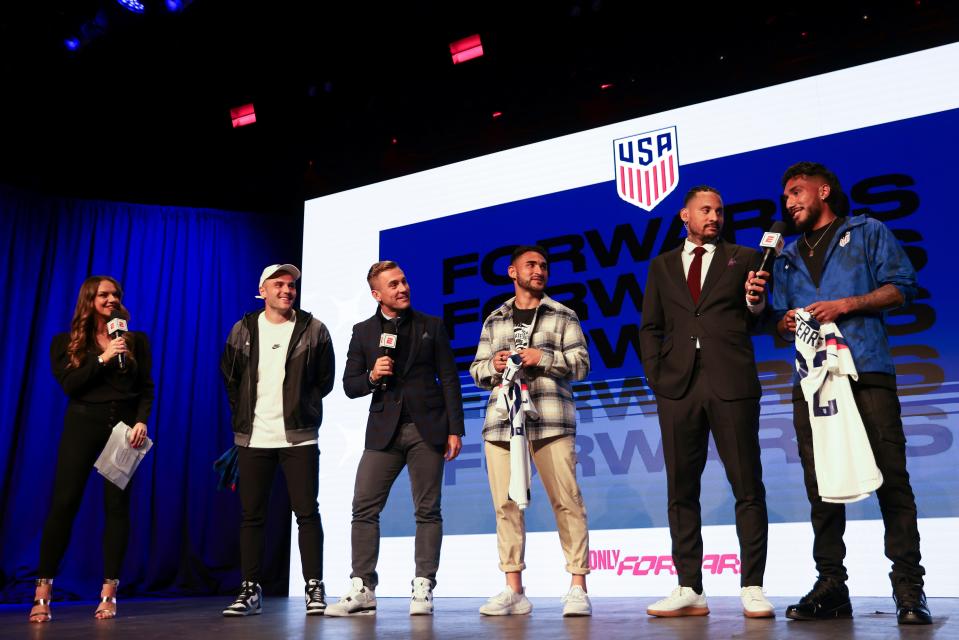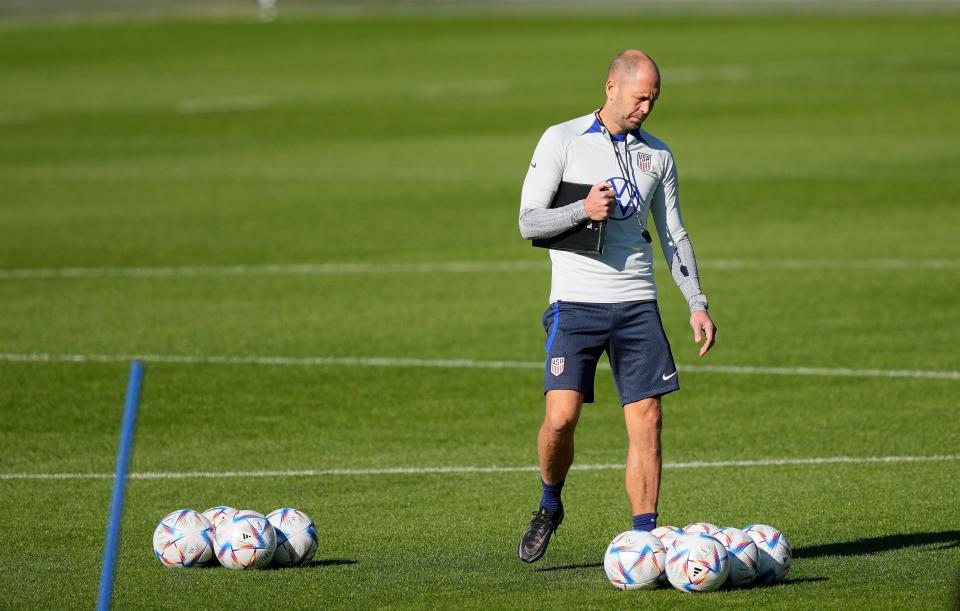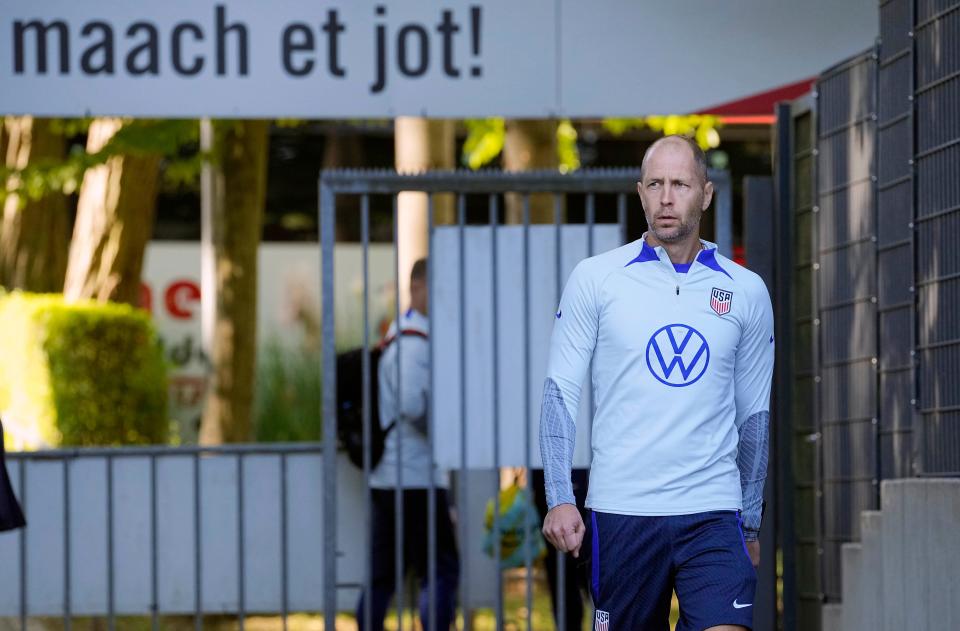A young USMNT will do well to get out of group stage at World Cup | Michael Arace

The World Cup on Sunday will open with a game between the host nation, Qatar, and Ecuador. The U.S. has its first match Monday, against Wales. How are ardent U.S. fans feeling? They have two default modes: “We’re Doomed” and “Fire Coach.” Both modes have been activated.
What are realistic expectations for the USMNT, which, for whatever its worth, sits in 16th place in the FIFA’s world rankings? Group B also includes England (No. 4 in FIFA world rankings), Wales (No. 19) and Iran (No. 20). It’s a potentially tumultuous group.
According to U.S. Soccer, the USMNT was the youngest national team in the world throughout qualifying. The math says that the USMNT is the second-youngest team after Ghana in the Qatar tournament; both rosters have an average age of between 25 and 26. Suffice, experience is a huge thing in the world’s biggest sporting event, and the "golden generation" of U.S. players is not grizzled. It's barely old enough to shave.
There’s a bigger picture to take in here. While it’s tactically important for the U.S. to play well in Qatar, one strategic goal – making it back to the big stage after missing, disastrously, four years ago – has already been achieved. What is more important in the grander scheme is to have this “golden generation” burnished for 2026, when the U.S. will be the primary host (flanked by Mexico and Canada).
The last time the U.S. hosted, in 1994, a sleeping giant stirred. Growth in American youth soccer was catalyzed and the ground for MLS was seeded. Today, the game is a major player on our sports landscape. If U.S. soccer fields its best-ever men’s team in 2026 – a distinct possibility – it could propel American soccer into a different international stratum. That's the real goal.

Four years hence, expectations for the USMNT might go beyond advancing beyond the round robin of the World Cup. Which brings us back to Group B. There is Wales, whose star, Gareth Bale, 33, is at an age where this might be his last shot to rock the world stage. He can win a game by himself.
There is England, perceived to be a poorly managed team, poised for disappointment. Is it so?
And then there is Iran, a country roiling with political protest, and no fan of the West. The Iranian players are caught in the middle.
FIFA has issued a memo that asks soccer players to concentrate on soccer, and not politics, during this World Cup. Of course, it was FIFA that created a geopolitical storm when it made Qatar the host country. Now it wants everyone to just calm down. Ah, FIFA.
My resident World Cup bracketologist is a bearded 25-year-old who wears a stocking cap in the house, which is to say he is legit. He has Argentina beating Belgium in the final. He has Senegal beating Portugal in the third-place game (but he is rethinking that pick since Senegalese forward Saudio Mane was scratched on the eve of the tournament).
He has England winning Group B and losing to Senegal in the first knockout round (again, rethinking). He has the U.S. finishing fourth (last) in Group B, but, he said, “It’s a weird group, and the U.S. could finish anywhere from second to fourth.”
Nostradamus.

The more pessimistic U.S. fans, otherwise known as the 99%, are concerned about the form of the team coming out of an uninspiring September camp. They wonder whether coach Gregg Berhalter’s system, which hasn’t generated much against conservative defensive formations, will have problems in must-win/must-tie games against Wales and Iran. Nobody gives the Americans a shot at beating England.
My worry is that the Americans don’t have a well-established slayer along the lines of Brian McBride, Landon Donovan, Clint Dempsey, Michael Bradley. Maybe Christian Pulisic, aka Captain America? His time is nigh.
I have some sanguinity. This team has come a long way, from out of the ashes, since Berhalter took over in December 2018. He is one of the most scrutinized people in America, and he has been nit-picked about everything from roster decisions to substitution patterns to tactics to his shoe game. In the end, he has molded a tightly knit team that tends to smile.
“We’re ready,” Berhalter said. “The team is ready to try to make the nation proud.”
I’m biased. I like Berhalter. He is the right guy to handle a team that doesn’t know any better. I think they’ll play with joy and get out of group and maybe even win a game in the knockout round.
Whatever happens, it'll only be part of a longer journey.
This article originally appeared on The Columbus Dispatch: Berhalter: U.S. team is ready to make nation proud at FIFA World Cup

